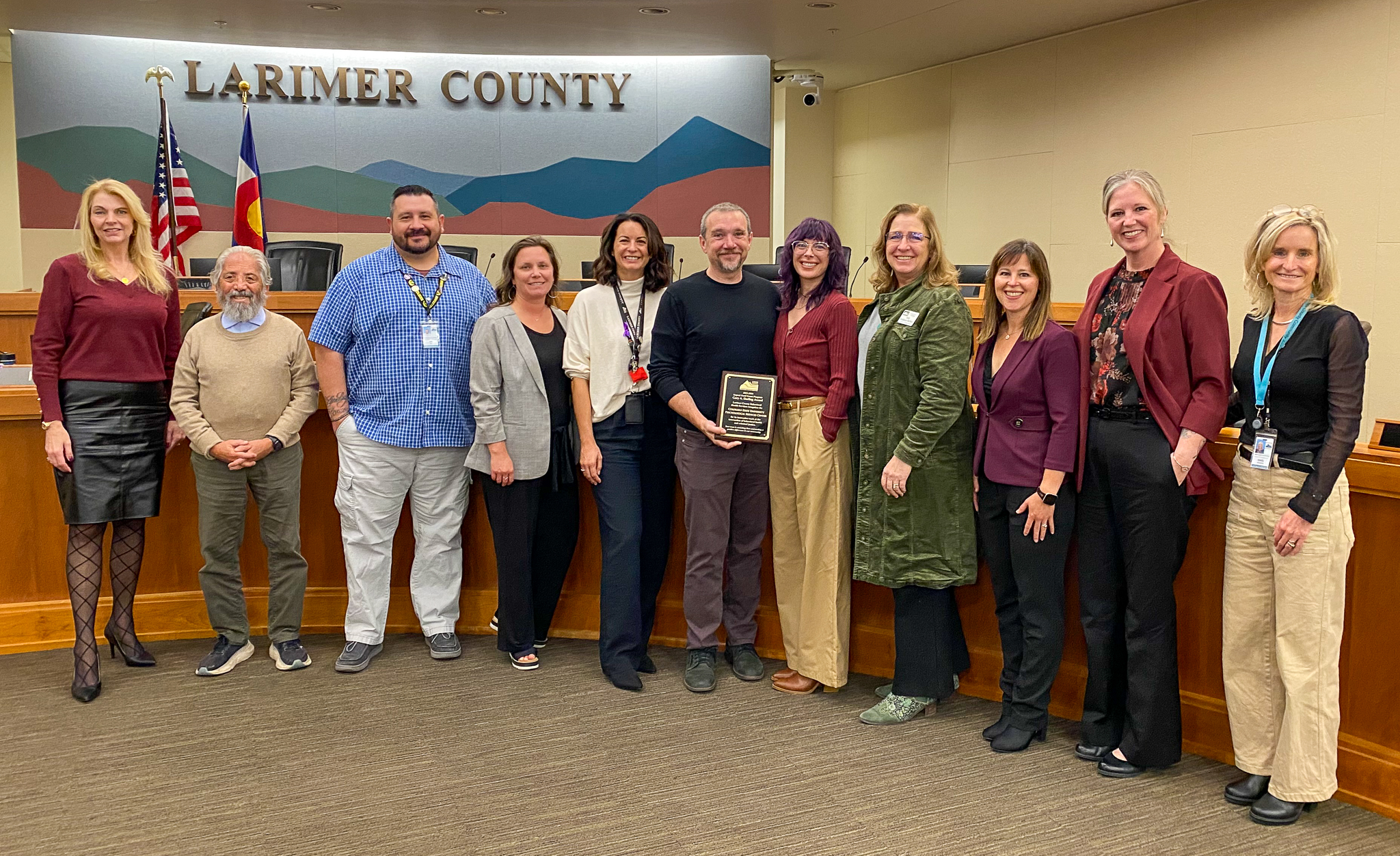Larimer County recognizes Colorado State University team for innovative, tax-funded behavioral health program
Gary A. Darling Award for those making positive strides with individuals involved with justice system
A new Colorado State University (CSU) program aims to increase access to behavioral health care for individuals re-entering the community after incarceration.
The pilot program is housed within the CSU Psychological Services Center and funded in part by the taxpayer-supported Impact Fund Grant Program, which has awarded $17.7 million in grants to 77 unique organizations in the past seven years.
Larimer County commissioners and staff recognized the program team Tuesday with the prestigious Gary A. Darling Award. It is named for community mental health advocate Gary Darling, a previous and long-time Larimer County Sheriff’s Office employee. Those who know him said he was a big believer in supporting people who were incarcerated to navigate re-entry to the community.
“This award shines a light on transformative solutions that create better paths forward,” Jessica Plummer, Larimer County Behavioral Health Services (BHS) program manager, said during the award presentation.
Plummer commended the CSU team for increasing access to care for individuals who do not have viable or affordable options for mandated outpatient counseling. The pilot also strengthens Larimer County’s behavioral health workforce, she noted, through opportunities for ethical supervision of early-career clinicians and a future state program designation that would enable them to seek loan repayment.
The CSU team is one among 42 organizations awarded $3 million in Impact Fund grants during the 2025 cycle.
Using the $50,000 BHS grant and other funding, the program’s director, project director, and interns aim to improve the behavioral health of adults transitioning from incarceration or community supervision and are referred by the team at Larimer County Community Corrections. They may also include those who are underinsured or uninsured and face barriers to getting care.
“This is an innovative program that aims to provide behavioral health services to those who need them the most but are often unable to access them. We could not do this without the support of this award,” said Bradley T. Conner, Ph.D., a CSU professor in the Department of Psychology and the director of the Addiction Counseling Program, who will oversee the pilot program.
The pilot program is intentionally scaled to start small, with one licensed clinician and interns providing individual outpatient care to clients. However, the long-term vision is to build a strong foundational model that can grow to meet increased demand, offering additional services, such as group treatment and substance-use evaluations.
Wanting to get a good return on something one puts money into isn’t unique to business deals or personal finances. It’s key to how Larimer County invests its behavioral health tax funds.
When voters approved the 0.25% sales-use tax in 2018, it came with a commitment from Larimer County Behavioral Health Services. Tax funds go to expand and enhance behavioral health services in order to improve well-being for everyone.
It’s a significant investment that can pay dividends – people can get well, and the community avoids paying additional costs.
It costs more to not address the gaps in current mental health services in treatment. Hospitals and jails are the most costly and least effective ways to treat mental illness and substance-use issues.
Said another way, taxpayers save money when individuals get the right care through the right-sized approach.
"People don't understand how critical this work is," said Commissioner Jody Shadduck-McNally, who noted the importance of our community's investment in new and innovative approaches to behavioral health, such as this pilot program. "There are a lot of trained specialists who help people find hope and a pathway."

Madeline Novey
Communication Coordinator
Behavioral Health Services
970-619-4255
noveyme@co.larimer.co.us
